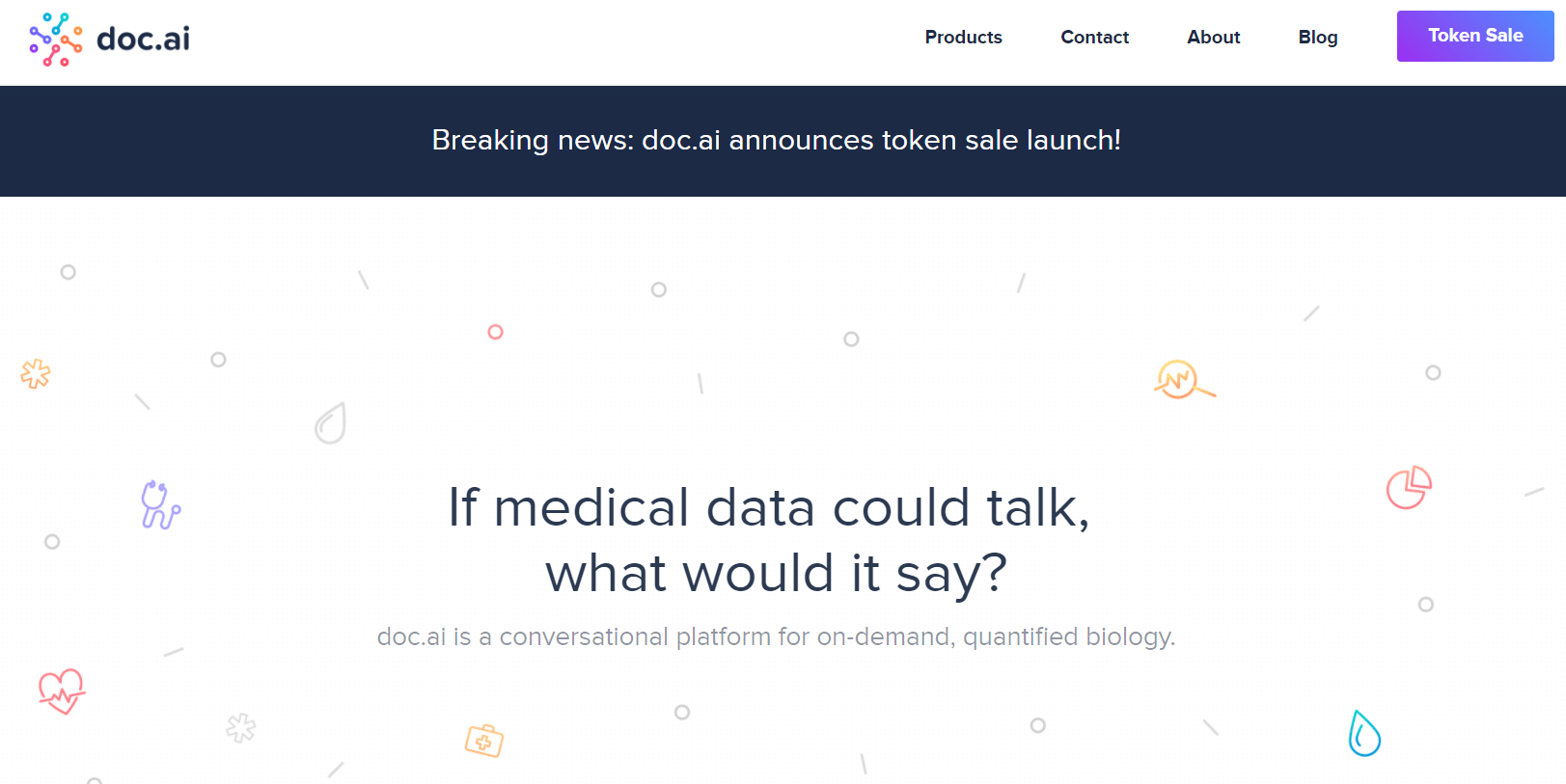
doc.ai Incorporated (“doc.ai”), a San Francisco, CA-based digital health startup has announced the launch of its blockchain-enabled natural language processing (NLP) platform for quantified biology. Founded by the entrepreneurial Walter De Brouwer in 2016, doc.ai utilizes the blockchain to timestamp its datasets and decentralize artificial intelligence to generate insights from combined medical data.
doc.ai is building a new platform for established medical companies to enable patients to have personalized, AI-powered conversations about their health at any time of day. Over the next twelve months, doc.ai plans to roll out three AI-powered natural language processing modules to medical providers and payers:
NLP Platform for Quantified Biology Overview
1. Robo-Genomics, designed to improve comprehension of genetic data and provide users with decision support. The agent supports upsells, test result comprehension, genetics education, genetic counseling preparation, and in-app appointments.
2. Robo-Hematology, designed to answer any question on 400+ blood biomarkers based on the user’s age, gender, and medical history, and can respond with rich content such as images and videos.
3. Robo-Anatomics, a patent pending Selfie2BMI module uses state-of-the-art Deep Neural Network and optimization techniques to predict a variety of anatomic features including height, weight, and gender from face.
Deloitte Life Sciences and Healthcare is currently working with doc.ai to test its Robo-Hematology solution, which was unveiled on July 24, 2017 at Deloitte University in Dallas, TX.
How doc.ai Works
Working with medical companies, doc.ai’s AI technology is designed to use a decentralized, edge-learning network to develop insights based on personal data. An edge-learning network performs deep learning computations at the edge of the network or on a mobile device.
Using artificial intelligence, doc.ai personalizes conversations with patients on their health data via a mobile app, and is available to provide information 24/7. For example, a patient can ask the AI questions such as “What should be my optimal Ferritin value based on my iron storage deficiency?” or “How can I decrease my cholesterol in the next 3 weeks?” or “Why was my glucose level over 100 and a week later it is at 93?” AI provides the answers and additional context for each answer. Patients can leverage conversations with the AI-powered robo-doctor to achieve better health outcomes from consultations with their physician.
“We are making it possible for lab tests to converse directly with patients by leveraging advanced artificial intelligence, medical data forensics, and the decentralized blockchain. We envision extensive possibilities for the use of this technology by doctors, patients, and medical institutions,” commented Walter De Brouwer, founder and chief executive officer of doc.ai in a statement.
The company has raised seed funding from Comet Labs, F50, Legend Star and S2 Capital, and has several prominent clients.
doc.ai Digital Token Sale Details
To power its platform and incentivize the community, doc.ai will be creating digital tokens, named Neurons (“NRNs”), based on the ERC-20 standard.
doc.ai will sell and issue Simple Agreements for Future Tokens (“SAFTs”), which will convert into NRNs upon the launch of the platform. SAFTs will initially be available through a pre-sale process that is expected to start on September 7, 2017. The crowdsale process is expected to start on September 28, 2017. The solicitation, offer, and sale of SAFTs will be conducted in a manner that is compliant with applicable securities laws and regulations, including Rule 506(c) of Regulation D. In the United States, only verified accredited investors will be eligible to purchase SAFTs.
The total number of NRN to be created will be based on the number of neurons in the human brain, 86 billion. Total of 860 million NRN will be created, with one NRN representing 100 neurons in the human brain. Approximately 37% of the total number of NRNs is expected to be sold in the SAFT offering. doc.ai plans to use the funds raised from the sale of SAFTs to further develop its platform and technology.
